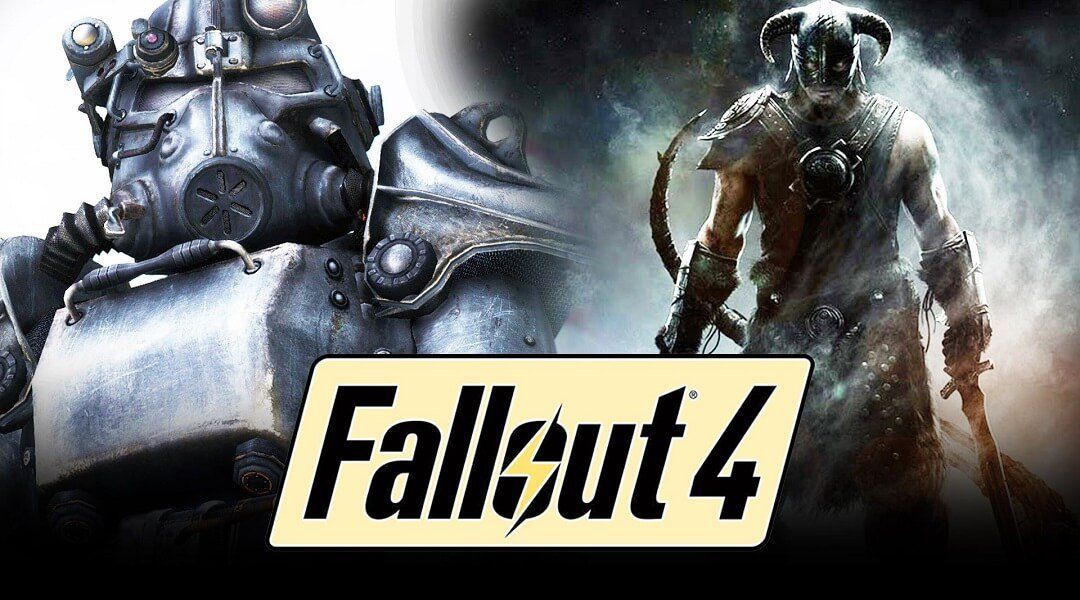
Fallout 4 Having Fewer Quests Than Skyrim Could've Been Great
By Cody Gravelle 26 December 2015
A recent comparison chart reveals that Fallout 4 actually has less quest content than Skyrim. While many see that as a shortcoming, could less quests in an open world game be a good thing?
If Bethesda Softworks goes down in history for one thing and one thing only, it’s probably going to be just how huge its games were in comparison to anything else that was released at the time. Although games like The Witcher 3 have recently cropped up as contenders to the incredibly-long Western RPG throne, it’s been Bethesda’s for so long now that it likely has Dragonborn decor. The Maryland-based development studio just knows how to make lengthy narratives compelling, and the team behind Bethesda games keeps pushing the envelope forward in terms of how many hours of gameplay fans are willing to sink into a single title.
Of course, when Fallout 4 released, many assumed that it would eclipse every previous Bethesda game in scale and content depth. Those assumptions were borderline confirmed upon the news that Fallout 4 has over 400 hours worth of exploration for those willing to put in the time, and all was well in the sandbox RPG world. However, a detailed comparison chart recently revealed that The Elder Scrolls 4: Skyrim actually had more quests and deeper questlines, and those who have doubted Fallout 4 as a serious Game of the Year contender pointed towards this fact as more evidence behind their claims.
While I believe that Fallout 4 would’ve been a favorite to win Game of the Year had it not been unfortunately pitted against quite possibly the greatest modern RPG effort of all time in The Witcher 3, the fact remains that it has had some noticeable flaws. But for as much as Fallout 4 is a glitchy mess at times, or its story might not fit the video game world Bethesda has placed it in, a smaller quest count is not among the title’s problems. In fact, a smaller focus on the volume of quests in Bethesda games is a refreshing take on the way the studio develops its games.

Let’s be honest: for as much as I and many in the gaming world enjoy Bethesda’s knack for spinning epic tales within their games, the end result of that implementation often leaves a little to be desired. In Skyrim, I was thrust into the role of the Dragonborn and immediately put in a position of great import. Will the protagonist unite the North under his gift and beat back the Imperial menace, or will they side with the foreign threat out of pragmatism? These kinds of political questions can make or break a roleplaying game and a player’s emotional investment in it, and the question was not an easy one to answer.
The problem is, Skyrim doesn’t ask you to answer it within anything resembling a reasonable time frame. The game is quite happy to let its protagonist wander through the snow for months on end, accomplishing virtually nothing while the political intrigue freezes as deep as the ice around their boots. The player is a wandering void of time and space that prevents anything important from happening without their presence, and while the same could be said about other RPGs, most keep their players on a tighter leash, at least prodding them towards the main narrative every now and then to keep things moving.
In Fallout 4, the difference is even more notable. Instead of the world falling apart at the seams and the protagonist being chosen to hold it together, the world has already crumbled to dust around them. The player is tasked with finding their son in lieu of saving an unsaveable world, but the same problem persists: I was more than happy to abandon all thought of rescuing my son to clear out raider encampments and track down Fallout 4‘s elusive alien creature to murder him for his blaster gun.
The reason for this is, of course, the incredible amount of quest options present within games like Skyrim and Fallout 4. But Fallout 4‘s smaller quest count represents the chance to do something different in the newer open-world RPG titles. I’m not advocating for a linear storyline, nor am I suggesting that a massive decrease in quests is required. Instead, less quests give developers options to make each one feel important to the overall progression of the game, rather than a mixture of important story elements and caves that exist for the sole purpose of finding a unique weapon.
It’s no coincidence that The Witcher 3 topped the Game Awards 2015 ballot for Game of the Year and it is the game that has come the closest to achieving this aforementioned feat so far. Each quest in The Witcher 3 felt inextricably tied to the main idea behind the game. Even when Geralt was off hunting monsters for villagers rather than trying to track down Ciri, it was because it is his job to do so and he requires money to achieve what he needs to find his companions. All of the little things add up in a way that makes very few decisions or movements feel irrelevant or wasted.

Fallout 4, on the other hand, feels like everything outside of the main four factions within the game is a waste of time. While some smaller quests have minor tie-ins with the major ones, for the most part, helping some guy turn on a power generator and finding Mirelurks after he does is a waste of time for both the protagonist and I. If quests like that one were cut in favor of expanding the scope of other minor pursuits, Fallout 4 would feel a lot more cohesive. I found myself desperately wanting well-written side quests, like the saga of Covenant, to produce a greater impact on the world around it, but those moments never came.
A high quest count doesn’t necessarily make for an enthralling RPG experience. The team behind Fallout 4‘s decision to reduce the number of quests in order to build a bigger world outside of them is certainly onto something, but that world also needs to be tightly tied together. The idea behind Fallout 4‘s quest structure and variation is excellent, but its execution leaves a lot to be desired.
How do you feel about the information regarding Fallout 4‘s quests? Did you find yourself wishing more of the game were about the intensely personal story of your own player character, or do you want freedom even if it comes at the cost of narrative cohesion? Let us know in the comments below.
